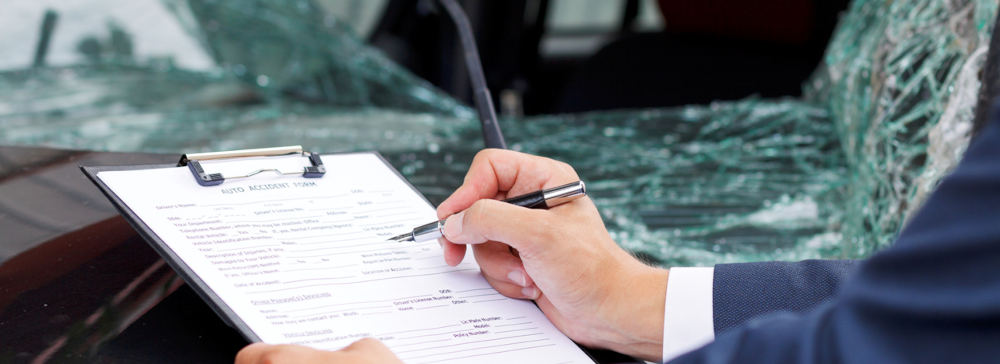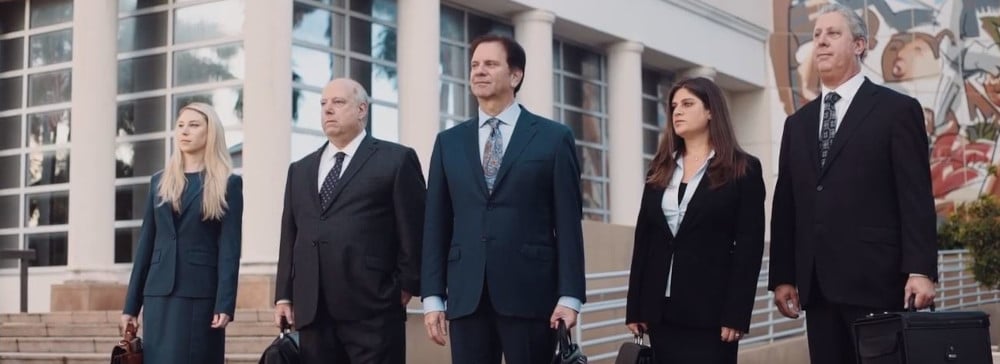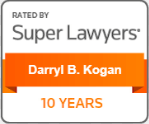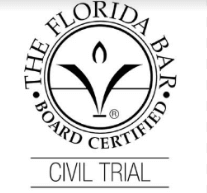
When Is the Truck Driver Liable for an Accident?
Table of Contents
The majority of accidents are the fault of one or more motorists. In vehicle accident claims involving questions of fault, the driver or drivers in the crash are the first party to consider.
Claims involving semi-trucks and other commercial vehicles are no exception to this rule. However, liability for the accident may be shared by the negligent truck driver and one or more additional parties.
If you have been injured in a collision with a big rig, it is in your best interest to speak to a truck accident lawyer as soon as possible. Contact Kogan & DiSalvo for a free case review, or call (561) 375-9500 today.
What Is Truck Driver Negligence?

Negligent behavior behind the wheel can take many different forms. Given their additional training and the large vehicles they operate, we expect truck drivers to operate their rigs with greater skill and attention than the drivers of passenger vehicles. Unfortunately, this is often not the case.
Common examples of negligence in truck accident claims where the commercial driver is at fault include:
- Distracted driving
- Speeding
- Improper braking (i.e., braking too fast or not allowing enough room to brake)
- Failure to signal turns
- Errors in turning the truck
- Running stop signs and red lights
- Reckless driving
- Driving while fatigued
- Aggressive driving (e.g., weaving in and out of traffic, following another vehicle too closely, etc.)
- Driving under the influence of alcohol or drugs (prescription or illegal)
Any of these errors may be at issue in a car accident claim or other case involving a motor vehicle. However, negligence on the part of the truck driver may also involve the violation of specific regulations governing the conduct of truckers and other commercial operators, including:
- Failure to inspect the rig prior to and during the course of a haul
- Exceeding the hours of service limits (the federal rules that require commercial drivers to take breaks of designated lengths after driving a certain number of hours)
- Failure to inspect and/or secure cargo in the course of the haul
No matter the cause, the driver is the first person your attorney will look at in building a truck accident claim on your behalf. A full investigation is necessary to determine how the negligence of the truck driver (and/or any other parties) led to the accident.
Proving Negligence on the Part of a Truck Driver

Although any accident investigation can be complicated, gathering evidence in a truck accident claim is especially complex. The cause of the crash is often not limited to the actions the driver took and/or did not take in the moments immediately before and during the collision.
Evidence that may support your claim against the truck driver includes:
- Photographs of the accident scene, including skid marks, damage to nearby structures, etc.
- Witness statements concerning the conduct of the truck driver
- Video footage of the accident
- Photos and forensic examination of your vehicle and the truck
- Review of data from the “black box” (electronic data recorder) on the truck
These and other types of evidence may reveal the “how” of the accident, such as that the truck driver was speeding, that the trailer was overloaded, and/or that a part on the rig malfunctioned. However, the “why” in truck accident claims is often just as important (if not more so) than how the accident occurred.
For example, negligence on the part of the truck driver may proceed from issues such as inadequate training. If the driver has a history of infractions (including driving while intoxicated, accidents, etc.), meanwhile, this raises questions about whether he or she should have been operating a rig in the first place.
For all of these reasons, your truck accident lawyer should fully investigate the trucker AND his or her employer. Company records may reveal negligence on the part of one or more additional parties, including issues such as inadequate employment screenings, errors in supervising drivers, failure to maintain the truck, systemic hours of service violations, and more.
Does the Florida No-Fault Law Apply to Truck Accident Claims?

In Florida, the victims of motor vehicle accidents have a limited right to sue. Unless the accident results in a serious injury or death, questions of fault and liability are generally not at issue.
However, the difference in size and weight between a semi and most other vehicles on the road means that the majority of truck accidents result in serious injuries. Fatalities are also not uncommon.
As a result, fault-based claims are fairly common in the event that a semi-truck collides with another vehicle. To recover compensation for serious injuries (or wrongful death, if your loved one died in the accident) in a truck accident, you must prove that the truck driver was at fault for the accident.
It is in your best interest to contact a truck accident attorney to build a strong claim on your behalf. Along with collecting evidence of fault on the part of the truck driver, your lawyer can investigate to determine if the trucking company and any other parties are liable for your injuries.
Contact a Truck Accident Lawyer Today

Liability is a complex issue in trucking accident claims. Although the driver of the truck may be directly at fault for the accident, it is important to identify all of the liable parties in your case to recover the full compensation you deserve.
Kogan & DiSalvo has more than 25 years of experience representing clients in complex truck accident claims. Our attorneys have earned millions of dollars in verdicts and settlements on behalf of those who have been injured or lost family members due to the negligence of truck drivers and commercial carriers.
Please call (561) 375-9500 today for a free case review. Our truck accident lawyers serve clients in West Palm Beach, Boca Raton, Fort Lauderdale, Boynton Beach, Stuart, Delray Beach, Vero Beach, Palm Bay, Tampa and throughout Florida.
 (561) 375-9500
(561) 375-9500

 Call
Call





